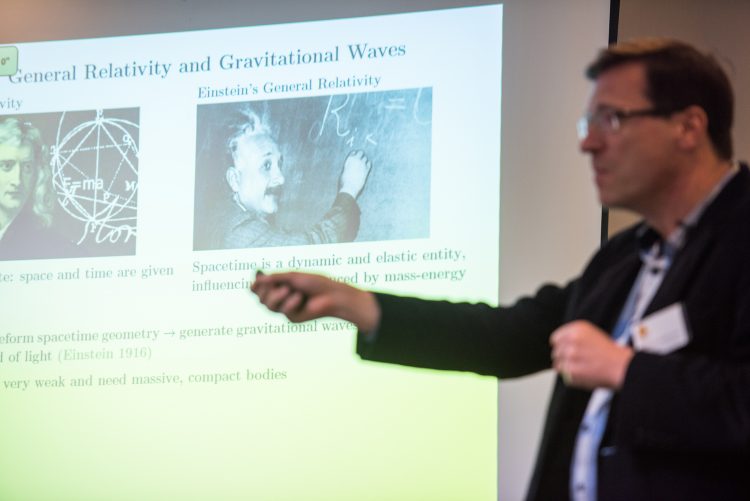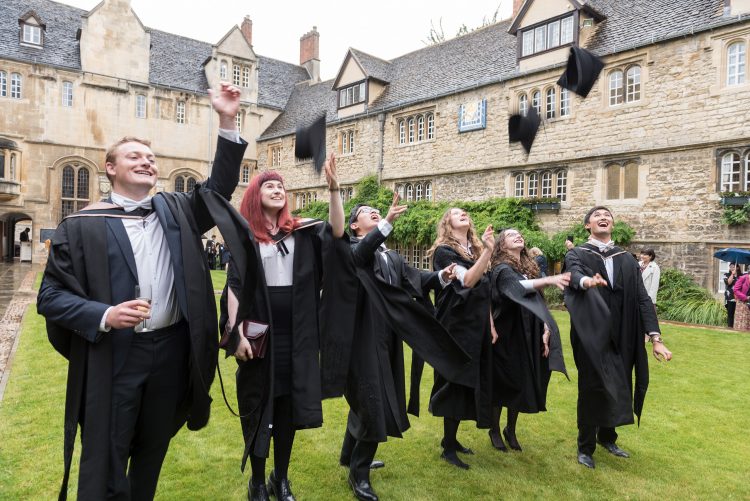Materials Science
undergraduates
Why Materials Science at St Edmund Hall?
The tutors at St Edmund Hall represent several specialist areas within Materials Science and show how the subject is truly interdisciplinary. A focus is placed on teaching as much as possible within the College, and drawing on the skills of all of our academic staff.
One of the exciting aspects of Materials Science is the vast range of real-world applications of the subject. For example, a huge amount of world-leading research on batteries is not only based in Oxford, but conducted by teaching staff at Teddy Hall. This research may well pave the road to better electric cars and provide solutions for large-scale renewable energy storage.
St Edmund Hall has the longest and most distinguished association with Materials Science of any Oxford college. William Hume-Rothery (1899-1968) was appointed as a Fellow of the College in 1958 on becoming the first Isaac Wolfson Professor of Metallurgy. It is also a rare distinction that six of the Hall’s Fellows in Materials have been elected Fellows of the Royal Society (William Hume-Rothery, Sir Peter Hirsch, Jack Christian, John Hunt, David Pettifor, Peter Bruce).
The College has strong links with industry, with alumni going on to work for companies such as Rolls Royce, Element Six and PwC.
Materials Science combines many aspects of the physical sciences to make a unique discipline. The underlying concept is the link between how a material is made, what it is composed of at the microscopic scale, and what the material does.
Materials Scientists at Oxford research a very wide range of topics, from carbon nanotubes for quantum computers to new alloys for nuclear fusion power. The tools used include high-level computing, the world’s most powerful microscopes and industrial-scale metal-forming machines.
The subject is thus likely to appeal to those with wide-ranging, cross-disciplinary interests in physical science. Applicants will need to have a good grounding in mathematics and its application to physical problems; they will need to be able to think across traditional subject boundaries and to work with problems to which there is no ‘right answer’. It helps to have a strong practical aptitude, and to be able to write coherent essays and reports as well as to set up and solve equations.
Students also have an opportunity to take part in an industrial tours, which previously has been to countries such as China, Sweden and Canada. Additionally, students are encouraged to undertake a voluntary summer project in industry or research, with recent students at the College working in institutions such as MIT, the University of Tokyo and the University of California, Santa Barbara.
Shortlisted applicants usually have one interview at St Edmund Hall, followed by a separate interview at another college. The interview will explore the Physics and Chemistry already covered at school or college, as well as looking at the applications and uses of materials in the world around us.
“When preparing for an interview in Materials Science, why not, when you have a few moments to spare now and then, look around at the things around you – what are they made of? Why was that material chosen? What properties does it have (or not have) that make it suited for its particular task?”
Prof. Jonathan Yates, Tutor in Materials Science at St Edmund Hall
Batteries are one of the most efficient ways to store energy, and there has been a massive increase recently in the use of lithium-ion batteries, particularly in electric cars. Do we have enough lithium, however, to support the wide-scale proliferation of electric vehicles? And are there alternative technologies we could adopt if not? The speaker is Mauro Pasta (Associate Professor and Tutor in Materials Science at St Edmund Hall, University of Oxford). This is one in a series of short ‘Teddy Talks’ presented at St Edmund Hall’s Research Expo in 2017
In this talk, Professor Sergio Lozano-Perez shows how we currently need to characterize materials at atomic level in order to understand their macroscopic behaviour. So, in another words, to explain how a crack propagates in a 300 tonne structure, we need to look at the atoms right ahead of the crack tip. Sergio Lozano-Perez is the George Kelley Associate Professor of Materials at the University of Oxford and a Senior Research Fellow at St Edmund Hall. This is one of a series of Teddy Talks recorded at St Edmund Hall’s Research Expo in 2015.
I came and toured all the colleges that offer Materials, and I just really liked the feel of Teddy Hall. I’m very glad I did because I really enjoy the College – both its academic set up and the social side.
Jeremy
Our Tutors

Jonathan
Yates
Tutor in Materials Science
Professor Jonathan Yates originally studied Physics before specialising in theoretical and computational materials science. By combining the skills found both in Physics and within Materials Science, Jonathan looks to solve problems computationally, rather than practically, to further predict and understand the properties of materials.

Sergio
Lozano-Perez
George Kelley Senior Research Fellow in Materials
Professor Sergio Lozano-Perez is the George Kelley Professor of Materials at the University of Oxford and a Senior Research Fellow at St Edmund Hall. His research focuses on the use of steel in nuclear reactors, specifically looking to understand the cause and spread of stress corrosion cracks.

Katharina (Tinka)
Marquardt
Associate Professor and Tutorial Fellow in Materials Science
Katharina Marquardt is an Associate Professor and Tutorial Fellow in Materials Science and Governing Body Fellow at St Edmund Hall.

Rebecca
Nicholls
Associate Professor in Materials Modelling
Professor Rebecca Nicholls is a Non-Stipendiary Lecturer who specialises in energy applications. She uses both electron microscopy and quantum mechanical simulations to predict and study the structure of materials at the nanoscale.
Related Courses


UCAS course codes
FJ22
Places available: 6
See syllabus and entry requirements for further information.